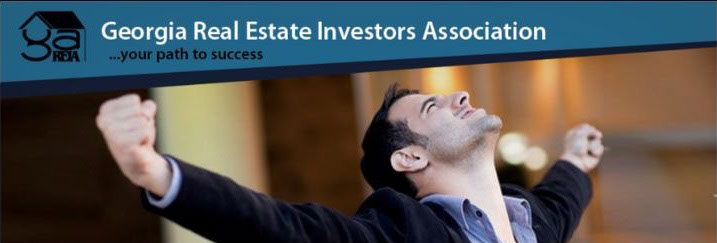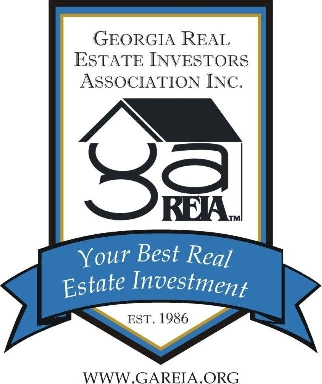We Are GaREIA Georgia Real Estate Investors Association - Issue 7, May/June 2016
Real Estate Lessons From Mom and Dad
By Mike Jacobson
With Mother’s Day in May, and Father’s Day in June, this seems an appropriate time to reflect on some of the real estate lessons I learned from Mom and Dad. Some of you know that I owe my passion for real estate to my dad. He was a broker, builder, investor and property manager. On one visit I asked him what he thought were some of the timeless lessons for real estate investors and here is the list he provided:
1. Real estate markets are very local. Know the demographics and how the local market trends are changing. Know the difference between a ripple and a wave.
2. Invest according to your age. When younger, invest for appreciation. When older, invest for cash flow.
3. Do not overextend. This includes leveraging and maintaining reserves.
4. Each property must stand on its own. The property must cash flow without accounting for depreciation or assistance from government programs. Use tax benefits to your advantage, but remember that any government program can be terminated at any time.
5. The first book he read on real estate investing was “Wake Up the Financial Genius Inside You” by Mark Haroldson. Interest rates and prices have changed, but the principles remain the same.
6. Cosmetic fixes are a lot less expensive than structural ones.
7. Screen your prospective tenants well. Call their previous landlord, not just the current one.
Mom was also an integral part of the business. She evaluated floor plans, helped choose materials and colors. She would look at how the kitchen triangle is laid out. The sides formed by a triangle with the sink, stove, and fridge should total less than 22 feet. And the garage should be on the same end of the house as the kitchen because nobody wants to carry groceries from one end of the house to the other. The path from the garage to the kitchen will be a high traffic area, so choose the floor covering accordingly. She also emphasized curb appeal, selecting house colors and landscaping.
Perhaps most important was her support, and they bounced ideas off each other frequently.
Real estate was a family business, and I am thankful for the lessons Mom and Dad passed along through experience and discussions.

GaREIA Motivational Minute:
The TRUTH About Measuring Success
When most of us think about success, we default to measuring it by the amount of money we make. It’s only natural; most of our business culture is organically focused on making money, so it makes sense that our main measure for success would be how effective our business is at doing this. However, for real estate investors, this particular measure can be a very dangerous thing if used in isolation.
Think about why you got into real estate investing in the first place. Is “making money” at the top of the list? If it is, then think about why you want to make money. Here are some common reasons:
- So I can spend more time with my family
- So I can send my kids to college
- So I can retire
- So I can buy [fill in the blank] to enjoy with family and friends
- So I can help others
- So I can pursue my passion of [fill in the blank]
All of these things are pursuits that money certainly does help you with, but they are not, in and of themselves, about money. In reality, they’re about time.

When you are a real estate investor, it can be easy to make that earning process into a job that is actually more time-consuming – albeit often more flexible – than a 40-to-60-hour-a-week job. If you find that you’re always worrying about your investments, that you’re skipping the things you started investing in order to attend, or that you barely see your family thanks to your real estate investing business, then it’s likely time to take a careful look at what you’re doing and determine if your present path will actually lead you to your true definition of success.
If not, here are a few things to think about:
1. What can I outsource, and how can I pay for that creatively?
Many investors do everything themselves because they don’t think that they can afford help. However, many employees will work very hard for a share in successful deals.
2. Where is my time actually going?
If you’re spending most of your day running errands, for example, then think about how to consolidate so that errands only happen once a week, or at least you keep the running around to a minimum so you can focus on doing deals, not driving.
3. What am I producing?
If the only answer is money, then you need to decide if you’re okay with that. In most cases, happy investors who are also successful long-term produce something else. That “something” could be kids that have a full-time parent at home (whether it’s you or your spouse), a charitable investment of some sort, or a long-term aspirational goal.
Remember, real estate investing is not the end; it’s the means to an end. Don’t let your real estate investing business take over your life to the exclusion of the bigger things that matter to you. Your business will thank you – and so will the other participants in your daily life.
GaREIA General Meeting Keynote Speaker:
Jack Bosche
"Land Profit Generator: Use 'Dirty Real Estate' to Make You Rich!"

About the Speaker
Jack Bosch is an immigrant who came to the U.S. in 1997 literally with 2 suitcases and a pile of student debt. When he got to the U.S., Jack had never been involved in Real Estate and did not know anything about that subject. However, over the course of a few years he developed and perfected an investing system that allowed him to go from practically zero ($3,500 in his checking account) to a net worth of $1 Million in 18 months, and to being financially independent by the age of 34.
Since then Jack has done 3,649 deals, all without having to deal with banks, contractors, or even inspectors…
On top of it, Jack has generated a high 5-figure monthly cash flow stream from free and clear LAND properties, which he bought for 10-25 cents on the dollar.
Jack has done deals all over the U.S., without even looking at most of these properties. His students are now doing deals in the U.S., while living all over the world.
It’s time for you to also look at real estate a different way, the simple way to large profits.

What You Will Learn at the Event
- A Simple, Effective Strategy for turning Huge Profits on VACANT LAND
- Case Studies, including:
$1,875 turned into $86,000
$100 turned into $10,000
- Why you never have to see this land in person
- How to do this with NO CREDIT, LITTLE TIME, and LITTLE MONEY
- Why this may be the BEST WAY to fast, massive cash flow
Jack will be speaking at GaREIA’s May 9, 2016 meeting. He will deliver the keynote address and be available after the seminar to meet members and answer questions.

GaREIA meets on the second Monday of each month at the Wyndham Atlanta Galleria, 6345 Powers Ferry Rd, Atlanta 30339. Doors open at 5:30 pm.
GaREIA News Notes: May/June 2016 Edition
**Katt Williams Banned from Public Housing in Gainesville
Katt Williams is known – indeed notorious – for his controversial comedy, and the Gainesville Housing Authority (GHA) isn’t interested in supporting the comedian on his latest tour. In fact, GHA has actually banned Williams from setting foot on any of the 14 housing complexes it manages, and said he will be arrested if he attempts to access the premises. Williams has been fighting off a number of bizarre accusations about his behavior lately, including an accusation from a teenage boy who lives in one GHA complex that Williams assaulted him. Williams claims that the boy was aggressive toward him and that he responded by punching the teenager; the teen alleges that Williams said to him, “Hit me,” then sucker-punched the teen first.
**Sandy Springs Planning Commission Rejects Senior Housing Proposal
Senior housing seems like a sure bet these days thanks to an aging population of baby boomers who are likely to be moving out of their long-term residences in the next decade. However, reported Parc Communities recently, the Sandy Springs Planning Commission just isn’t sharing the vision. The community’s proposal to tear down a local church and construct a 201-unit senior housing complex in its place on Glenridge Drive was denied at the end of April. The plan included four buildings, a concrete parking deck, an open-air pool, and an amenity area. Parc Communities called the proposed complex “very upscale.” The church in question, Apostles Church, is planning to move to another location. The case will be heard by the City Council in mid-May.
**Atlanta Board of Realtors Releases March 2016 Statistics
The Atlanta Board of Realtors (ABR) released its March 2016 Market Brief recently, providing residential housing statistics for the 11 counties in metro Atlanta. The report showed that residential sales were up 6.9 percent in March year-over-year, while average and median sales prices also continued to outpace last year’s figures. Median sales price in March was $233,000 (up 7.4 percent over March 2015) and average sales price was $292,000 (up 6.2 percent over March 2015). The board also noted that inventory was down year-over-year by 1.4 percent, and new listings were up 26.3 percent month-over-month. ABR president Lane McCormack predicted “a robust spring market” and added, “I believe low rates and positive employment forecasts will contribute to active buyer demand, median and average prices accelerating, and a strong housing market through Spring 2016.”

**Wall Street Firm Betting Big on Low-Income Buyers, Good News for Georgia Real Estate
Investment firm Shelter Growth Capital Partners, guided by its founders, all Goldman Sachs executives, is betting big on low-income buyers in 2016. The group just purchased more than 200 homes in several areas, including Georgia, and all the properties are specifically intended for sale to low-income buyers who cannot get a conventional home loan. The properties will be sold via long-term, high-interest home loans to these buyers. This is good news for Atlanta real estate and the state at large because Georgia has plenty of these types of properties available and opportunities for local investors to mimic this strategy, which hinges on the purchase of inexpensive starter homes and their sale, as-is, to buyers who will likely never be able to qualify for a conventional mortgage. The group that sold the package of homes to Shelter Growth has sold nearly three times that just in recent months to other investment firms and individual investors.
GAREIA Success Stories: John Clarke & Steve Laube; “The Mobile Home Group”
John Clarke & Steve Laube
John Clarke purchased a house [img. 1] from a wholesaler for $30,000. Steve Laube lent him $30,000 for the purchase. Although John had originally intended to fix the property up and rent it, he received an offer for $80,000 on the property just four months after the original purchase and accepted it. John made about $35,000 on the deal and Steve was able to put about $9,500 back into his self-directed IRA as a result of the partnership.
This success story involves GaREIA members at every step of the process. John bought the property from a member he met at the meeting, and borrowed funds from a lender and member who regularly attends the monthly General Meeting and Dealmakers subgroup.
“The Mobile Home Group”
A group of GaREIA members worked together to pool their funds and purchase a mobile home park near Gulf Shores, Alabama, a tourist beach community. The group used funds from self-directed IRAs and other sources of savings to put $330,000 down on the property and take control. At time of purchase, the park had 38 paying pads, the option to expand quickly to 50, and an 18 percent cash-on-cash return. Once the park is fully expanded to its 68-pad capacity, the park will have an annual $226,000 NOI and will fully double in value. The projected timeline for this expansion and occupancy is four years. The group plans to sell in in five to eight years.
This deal hinged on GaREIA members’ networking capabilities at the General Meeting, GaREIA subgroups, and elsewhere. Without GaREIA serving as a centralized point of contact, this group likely never would have coalesced and this deal would likely not have happened.
GaREIA Legislative Update May/June 2016
New Closing Disclosures
If you have conducted a closing in the past few months, then you may already be painfully aware of the new regulations and requirements imposed by the Consumer Financial Protection Bureau (CFPB) as part of the sweeping “Know Before You Owe” law that was part of the Dodd-Frank Act. The law, also known as the TILA-RESPA Integrated Disclosures (TRID), contains regulations affecting truth-in-lending (TIL), loan servicing, good faith estimates (GFEs), and the HUD-1 Settlement Statements. The law was designed to make the entire process simpler and combine all of these items into just two forms, but in reality, many professionals say it has hindered their closings and made it harder for buyers to lock in low interest rates.
Here are a few things to know before you head to closing:
• There are now “just” two new forms dealing with loans
These forms are the Loan Estimate and the Closing Disclosure. They are designed, said the CFPB, to help consumers better understand loan terms and enable them to shop services more effectively. However, and here’s the kicker, if you change anything on these two forms, the consumer has a mandatory three days to look at the changes, which, over time, has extended closing times substantially.

• Loan Estimates come out within three days of a loan application
The Loan Estimate (LE) provides the borrower with interest rate information, monthly payment amounts, escrow information, pre-payment penalties, adjustable rate notes, and closing costs information. Borrowers cannot be charged for the LE, but they can be charged for the cost of obtaining a credit report.

• The Closing Disclosure can be waived in some circumstances
If there is a certifiable “real emergency” (as determined by the CFPB, perhaps?) then a buyer can waive the Closing Disclosure (CD). However, these conditions are very specific and usually the CD cannot be waived. Nor can a seller or real estate agent see a buyer’s CD unless they show it to them. Changes to the CD after closing must be reported and addressed within 60 days of closing.
Always remember, GaREIA is here to provide educational material, not legal advice! Do not apply this information to your specific situation without the advice of an attorney and any other appropriate professionals.
